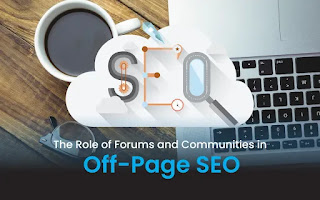Cookie Less Future for Marketing in SEO - SEO Zooms
Navigating the Cookie-Less Future: What Marketers Need to Know About SEO
As the digital landscape continues to evolve, marketers must use to be changing environment driven by data privacy regulations and a heightened emphasis on consumer privacy. A central part of this evolution is the impending cookie-less future, where traditional tracking tools, like third-party cookies, will no longer be available. This shift poses significant challenges for marketers and search engine optimization (SEO) professionals who have long relied on cookies for insights into user behavior, targeting, and retargeting. However, it also has an opportunity to rethink SEO strategies, focusing on sustainable, privacy-friendly, and innovative approaches. In this article, we’ll put into the key implications of a cookie-less future for SEO, how marketers can adjust their strategies, and what new and technologies are available to assured long-term success. In this , we’ll dive into the key implications of a cookie-less future for SEO, how marketers can adjust their methods , and what new tools and technologies are available to ensure long-term success.
1. What Are Cookies and Why Are They Going Away?
- Personalized experiences: Offering content based on user preferences.
- Tracking and analytics: Understanding user behavior on websites and apps
- Targeted advertising: Serving ads based on a user’s previous interactions across multiple sites.
2. The Impact of a Cookie-Less Future on SEO
The cookie-less future will have several significant consequences for SEO, mainly is to tracking and targeting audiences. Here are some key areas where SEO will be affected:
3. How Marketers Can Adapt to the Cookie-Less Future
a) Focus on First-Party Data Collection
- Email Sign-ups & Subscriptions: Encourage website visitors to sign up for newsletters or other forms of communication. These subscribers are valuable assets for personalized content delivery.
- Surveys & Polls: Use surveys to gather insights into customer preferences, behaviors, and needs. This direct feedback can inform content strategies and marketing decisions.
- Behavioral Analytics: Tools like Google Analytics 4 (GA4) are moving toward event-based tracking, offering more insights into user interactions without relying on cookies.
b) Embrace Contextual Targeting
c) Invest in Privacy-First Technologies
Without third-party cookies, marketers will need to shift their focus away from targeting individuals based on their online activities across multiple sites. This may lead to less precise targeting and harder measurement of ad performance, especially with traditional paid search campaigns.
- Privacy-First Analytics Tools: Tools like Matomo, Fathom, and Piwik PRO prioritize user privacy by offering cookie-less tracking alternatives.
- Google Analytics 4 (GA4): GA4 focuses on event-based tracking rather than relying on cookies and offers features that support privacy compliance, making it an essential tool for modern SEO strategies.
Search engines, especially Google, have always prioritized high-quality, relevant content. In a cookie-less future, this focus will intensify. SEO professionals should double down on creating content that answers user queries effectively and delivers an excellent user experience.
- Optimize for Core Web Vitals: Google’s Core Web Vitals, which measure page load speed, interactivity, and visual stability, are now critical ranking factors. In a world without cookies, providing users with fast and seamless experiences will become more important than ever.
- Focus on E-A-T: Expertise, Authoritativeness, and Trustworthiness (E-A-T) are becoming increasingly important for SEO rankings. High-quality, trustworthy content will resonate with both search engines and users.
- Voice Search & Intent Optimization: As search engines evolve, focusing on user intent and optimizing for voice search will be key. Tailoring your SEO strategy to answer natural language queries will give you an edge in this new landscape.
e) Implement Conversion Modeling and Attribution
The loss of cookies will make tracking conversions and attributing actions to specific touchpoints more challenging. However, conversion modeling and advanced attribution techniques can help mitigate this:- Modeling User Journeys: Using machine learning and AI-driven insights, you can model customer journeys and understand how different interactions across channels contribute to conversions, even when cookies aren’t available.
- Attribution Tools: Invest in advanced attribution tools that can analyze the overall performance of your marketing efforts without relying solely on cookies.
4. The Role of Artificial Intelligence and Machine Learning in the Cookie-Less Era
Artificial intelligence (AI) and machine learning (ML) will play an essential role in the cookie-less future of SEO. These technologies can help marketers automate and optimize processes such as:
- Predictive Analytics: AI tools can analyze large sets of data and predict future user behaviors, allowing marketers to create more accurate personas and develop better-targeted strategies.
- Personalization: While third-party cookies are disappearing, AI-powered personalization can still create tailored experiences for users based on their interactions with content, site behavior, and more.
5. Conclusion
The cookie-less future presents a monumental shift in how SEO and digital marketing operate. While there are undoubtedly challenges ahead, such as the loss of detailed tracking and targeting, marketers have an opportunity to focusing on first-party data, leveraging new privacy-first technologies, and evolving their SEO strategies to focus on user experience, content quality, and privacy compliance. These changes will not only compliance but also for stronger, more sustainable marketing practices in an increasingly privacy-conscious world. In this, new era, marketers main prioritize privacy, data ethics, and innovative strategies will be best positioned for long-term success.




Comments
Post a Comment